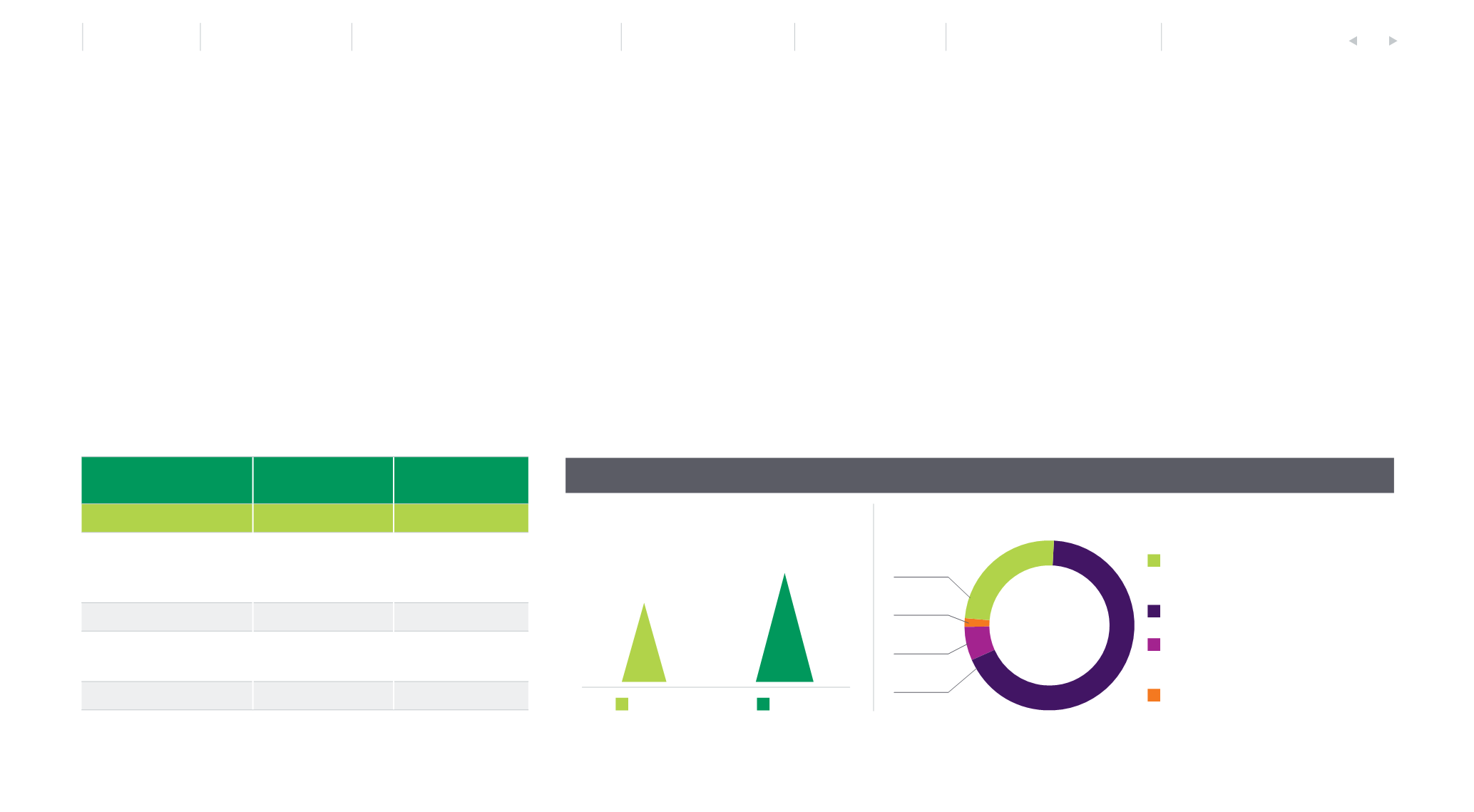

Unimed System Sustainability Report
61
CONTENTSINTRODUCTION GOVERNANCE AND MANAGEMENT
ECONOMIC HEALTH SOCIAL HEALTH ENVIRONMENTAL HEALTH
EXHIBITS
Investment in training
In 2014, Unimed do Brasil offered six trainings to the Unimed System in the onsite and videoconference modalities, which encompassed the topics: Legal Entity Economic Fiscal Infor-
mation Declaration (DIPJ), Transition Accounting Fiscal Control (Fcont) and Federal Revenue Service Crossings, Digital Accounting Bookkeeping (ECD) and Digital Fiscal Bookkeeping
(EFD) – Updates, Internal Controls, Financial Mathematics, Accounting Management for Cooperatives and Accounting for News Accountants. As an average, there were 120 attendants
per training, representing 35 cooperatives at each training offered. Unimed do Brasil, in partnership with Sescoop, has also promoted several courses valid for the next edition of the
Unimed Cooperative Governance National Seal. The courses held were: Cooperative Governance, Elementary Board of Directors, Audit Board and Ombudsman. Among Unimeds which
held the courses there were: Unimed Cerrado, Federação Espírito Santo, Federação Paraná, Intrafederativa Oeste Paulista, Intrafederativa Centro-Oeste Paulista, Intrafederativa Vale do
Paraíba, Unimed Ceará and Unimed Apucarana. In 2014, besides the trainings offered by Unimed do Brasil, the Unimed System invested over R$ 27.4 million in training. Of this amount,
67% was destined to professional qualification, 25% to education/literacy topics, primary, secondary or higher education, 6% to cooperative management, and 2% to other courses, as in-
dicated by the chart below.
[G4-DMA]
A survey with the Unimeds own hospitals in the first semester of 2014 indicated that the training hours average per capita among the 32 own hospitals participating was 5.63
hours. In the same survey, the registered average was 23.12 hours considering federations, singular units, first-aid units, laboratories and other own resources, based on 169 sur-
veys received.
[G4-LA9]Employee
training
2013
2014
TOTAL
R$ 27,262,771.00 R$ 27,450,495.17
Education/literacy,
primary, secondary, or
higher education
R$ 6,994,932.18 R$ 6,732,675.47
Professional qualification R$ 18,431,813.74 R$ 18,528,186.63
Qualification in
cooperative management R$ 1,670,676.46 R$ 1,767,899.80
Other courses
R$ 165,348.62
R$ 421,733.27
Investment in training in 2014 - % per topic
2013 2014
R$ 27,262,771.00
R$ 27,450,495.17
25%
2%
6%
62%
Total value invested per year
% per topic
Education/literacy, primary,
secondary of higher education
Professional qualification
Qualification in cooperative
management
Other courses









